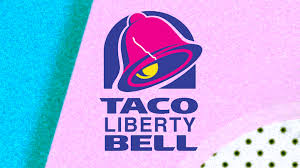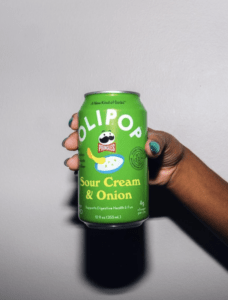A(PR)il Fools
Published on April 4, 2024, 6:05 p.m.
by Anne Smith.
You’ve probably fallen for April Fools’ jokes played on you by a friend or family member, but were you pranked by a brand this year?
The concept of brands partaking in April Fools’ Day is not a new one. In 1996, for example, Taco Bell announced

that the chain had purchased Philadelphia’s Liberty Bell and renamed it the Taco Liberty Bell. In 1998, Burger King also deceived its consumers when they announced the release of a new menu item — the Left-Handed Whopper — which fooled its customers into actually attempting to order the fake burger.
From pranks to publicity
This year on April Fools’ Day, many companies continued this tradition and joined in on the fun by posting the release of fake products or ideas in order to play a joke on their consumers. Although the idea of brands posting silly April Fools posts may sound trivial, this concept actually generates a lot of buzz for companies and brands. Not only that, but the popularity of the pranks can also create earned media as well.
Tinder posted a job listing on LinkedIn titled VP of Ghost Hunting with the mission of the role being, “to spearhead Tinder’s new ghost-hunting strategy to address and reduce overall ghosting behavior.” The company added that employees in this position will perform strategies such as analyzing emoji meaning, refine tactics to seek closure and help categorize different ghosters. In its post, Tinder even provided the characteristics of the types of employees it was seeking, as well as a fake annual yearly pay of $0 to $5.
This prank creates a human-like relationship between Tinder and its users. By acknowledging and making light of a very real problem that many people experience, being ghosted, Tinder appears more relatable as a company.
The April Fools’ advantage
When a brand plays into April Fools’ Day pranks, it also gives it a chance to use a creative approach to differentiate its name from other competitors in its market.
Olipop, a company known for its flavorful prebiotic sodas, posted a

fake advertisement about a new collaboration with Pringles to promote a sour cream and onion flavored soda. According to USA Today, the companies said their motive for creating this product was to “bring the delicious, tangy flavor of Pringles’ Sour Cream & Onion flavor to life in liquid form with prebiotic benefits.”
The competition in the prebiotic soft drink has grown immensely in recent years. In fact, Food and Business News stated that research shows “[s]ales in the United States of soft drinks containing prebiotics and probiotics increased 210% from April 2022 to April 2023.” And the market will only continue to grow, with a projected market value of $443.8 million by the year 2032. This means that brands in this category must stay up to date on new trends that set them apart from leading competitors, which is exactly what Olipop achieved by playing into its April Fools’ Day collaboration stunt with Pringles.
What prank did you fall for this year?




